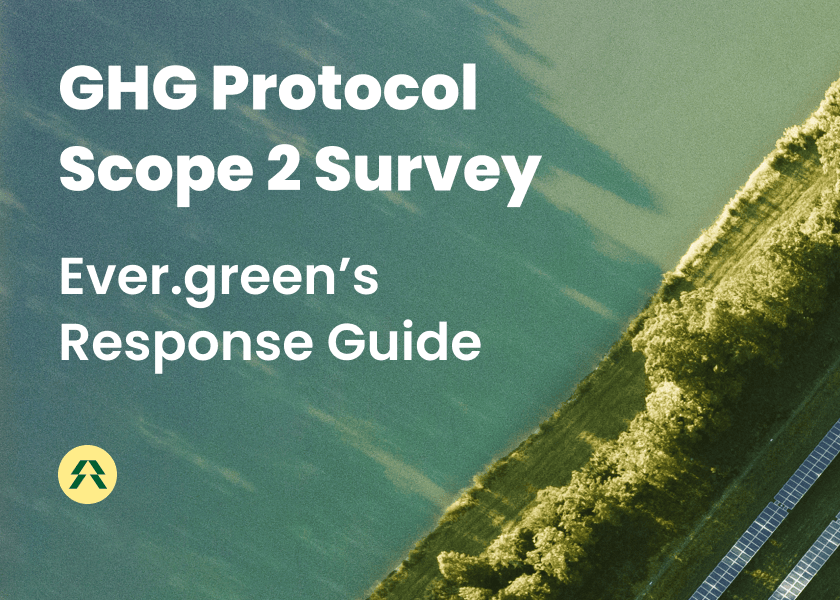Ever.green submits comments to the SEC to raise the bar for ESG reporting and accountability
Ever.green letter to the SEC in response to a request for public comment on climate-related disclosures, suggesting additional specific requirements.
Jun 18, 2022
Ever.green has submitted public comments to the SEC’s recent proposal for “The Enhancement and Standardization of Climate-Related Disclosures for Investors” (File No. S7-10-22) on June 17, 2022 to help ensure transparency and accountability in public disclosure of strategies for achieving GHG emission reduction targets. A copy of our full comments is available below and on Ever.green’s website at ever.green/insights.
First, we would like to applaud the efforts the SEC is making in this area, requiring companies not just to quantify Scope 1, 2, and 3 emissions, but also to report what companies are doing to actually meet their goals and strategies to reduce these emissions. In this arena, unfortunately, there is often a lack of transparency and clarity, and our comments mainly focus on prompting the SEC to to go further in its efforts to address this important issue for investors.
Specifically, many companies rely on buying unbundled renewable energy certificates (“RECs”) from brokers to meet their goals - when in fact, studies have shown that this strategy often has minimum climate impact. Other RECs, however, for example those purchased through forward contracts at substantial prices, do have an impact. As a result, RECs transact in a “wild west marketplace” which is opaque to investors - and there needs to be more clarity as to the ESG attributes of RECs so that companies can reliably make decisions to achieve their carbon goals. This is the exact problem Ever.green and its partners are trying to solve.
In order to help investors evaluate the impact their RECs are making, we suggest that each company be required to disclose the amount of emissions reductions actually caused by their purchase of RECs or offsets. And we note that answering such a question would require considering three factors:
Emissionality - RECs currently do not track or report the carbon off-set as a result of the renewable energy production. A REC that is generated in a dirty grid has significantly more climate impact than one in an already clean grid. Even within a grid, at different times or locations the carbon off-set is a dynamic picture. In our comments, we have encouraged the SEC to have companies disclose how they ensure the carbon emissions reductions claimed in connection with RECs are calculated on a net basis, taking into account baseline emissions.
Additionality - the purchase of unbundled RECs is only tenuously linked to the production of renewable energy, primarily through the theory that these purchases incentivize the development of new renewable energy production. As mentioned above, recent studies have shown that the empirical validity of this theory is dubious. We therefore encourage the SEC, in our comments, to require companies to discuss the basis behind their belief that the RECs or offsets they have purchased have actually caused new renewable energy generation or carbon-reduction that would not otherwise exist.
Exclusivity - many parties are often involved in the production of new renewable energy or offsets. We therefore encourage the SEC to require companies to describe how they are confident RECs or offsets they claim are not also claimed by other parties, which would result in double-counting of emissions reductions.
Finally, we also suggest that the above disclosures be subject to the same third-party validation that Scope 1 and 2 emissions already are under the SEC’s proposed rules.
“Ever.green is seeking to bring clarity to the ESG marketplace so that companies can be assured they have real, transparent choices with their climate investments, and our comments to the SEC reflect this commitment”
– Ben Dickson, Ever.green’s Chief Legal Officer and lead author of the comment letter
Download Ever.green's full Public Comment Letter to the SEC's File No S7-10-22






